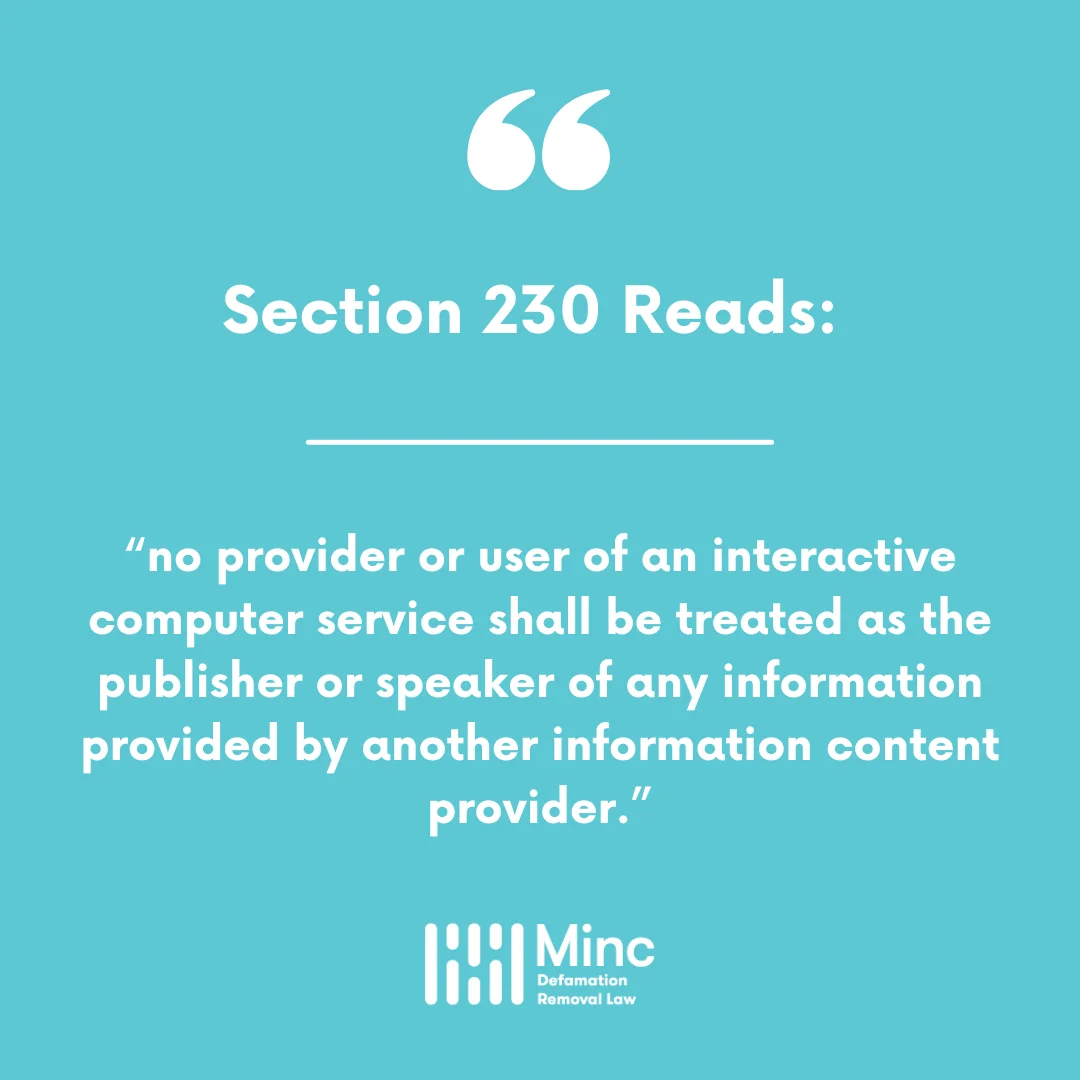
- Originally Published on August 6, 2025
How to Remove False Posts From Cheater Reporting Sites
False and defamatory online posts can cause serious harm to your reputation, career, and personal relationships. Cheater reporting websites are some of the most damaging platforms for this type of content. While these sites may claim to promote transparency or protect others, they are frequently used to publish anonymous and unverified attacks that serve no legitimate purpose.
Once published, this content is often indexed by search engines and visible to anyone who searches your name. Family members, employers, colleagues, and others can easily come across harmful allegations that may be completely false or misleading.
Fortunately, there are proven legal strategies to identify the individuals behind these posts, pursue removal, and protect your reputation. You do not have to accept this content as permanent or allow it to define you.
In this guide, we explain:
- What types of content can be removed from cheater websites
- How Section 230 of the Communications Decency Act affects your legal rights
- Which legal tools and practical steps are available to get content removed
- How to document evidence and assess the strength of your case
- When to involve an attorney and what to expect from the process
At Minc Law, we have removed thousands of defamatory posts from the internet. Our attorneys regularly help clients navigate cheater websites, identify anonymous posters, and take the necessary legal action to restore their good name.
Get a Free Case Evaluation
We get damaging content removed from the internet and take legal action if necessary. Trusted by 3,500+ clients for content removal, reputation protection, and as the nation’s #1 internet defamation law firm, to litigate when needed.
Understanding What Content Can Be Removed
Before we discuss more nuances of defamation law, it is first important to look at the types of content that undoubtedly carry some level of restrictions or potential illegality and can be removed promptly through specific legal mechanisms.
- Revenge Porn: Revenge porn is the unconsented posting of private photos of a sexual nature, ultimately humiliating or embarrassing the party in the pictures. If you are a victim of revenge porn, you may be able to pursue both criminal charges and civil damages depending on your state’s laws.
- Copyrighted Materials: Images that are copyrighted or where intellectual property rights are retained may not be infringed and used online without the author’s permission. If your copyrighted images appear on cheater sites, you can file a DMCA takedown notice to have them removed. This is often one of the fastest removal methods available, as platforms typically respond quickly to avoid copyright liability.
Immediate Action Steps for Illegal Content:
- Document everything with screenshots and URLs
- File DMCA takedown notices for copyrighted material
- Consult with an attorney about state-specific revenge porn laws
- Preserve evidence for potential criminal or civil proceedings
If you have been the victim of any of the above, it is highly recommended that you reach out to an experienced online revenge porn and defamation removal attorney immediately.
Can I Sue For Defamation? Understanding Section 230 of the CDA
Unfortunately, cheater websites and other user-generated content platforms are legal and enjoy broad immunity under Section 230 of a 1996 piece of legislation called ‘The Communications Decency Act’ (CDA). However, this does not mean you are without legal remedies.
Section 230 of the Communications Decency Act states:
No provider or user of an interactive computer service shall be treated as the publisher or speaker of any information provided by another information content provider.

What This Means for Your Removal Options:
While Section 230 protects platforms from liability, it does not eliminate your legal remedies. You can still:
- Sue the individual poster for defamation, harassment, or privacy violations
- Request removal based on platform policies most sites have terms of service prohibiting false or harassing content
- File DMCA takedown notices for copyrighted material
- Seek court orders requiring content removal in conjunction with lawsuits against posters
- Use subpoena power to identify anonymous posters through their IP addresses and account information
This means that while you typically cannot sue the platform directly, you can pursue multiple legal strategies against the actual poster of the defamatory content.
Step-by-Step Guide: How to Remove False Posts from Cheater Websites
If you have had your character and reputation defamed online, you have several legal and practical options available. Here is a systematic approach to addressing harmful content:
Step 1: Document Everything Immediately
Proper documentation is crucial for building a strong case and preserving evidence that could disappear at any time. Take comprehensive screenshots that include the URL, timestamp, username of the poster, and any visible user profile information. Use tools like Full Page Screen Capture browser extensions to ensure you get the complete page.
Harmful content rarely stays in one place, so you need to map its full spread across the internet. Search systematically using Google with your name in quotes, combined with keywords from the harmful post. Check multiple pages of results and try variations of your name.
Set up Google Alerts for your name to catch new instances appearing online, and create a detailed inventory documenting each instance with URLs, platforms, dates, and usernames.
Step 2: Assess the Legal Strength of Your Case
Understanding whether you have a viable defamation claim will determine your legal options and strategy. For content to qualify as defamation, it must meet four specific criteria: the statement must be false (truth is an absolute defense), it must be presented as fact rather than opinion, it must be shared with third parties, and it must cause reputational harm that you can demonstrate.
An experienced defamation attorney can review your situation and help you determine if the posts meet the elements required for a defamation claim.
Step 3: Determine the Best Removal Strategy
Direct Platform Removal Requests work when cheater websites have terms of service prohibiting false or harassing content. Submit removal requests citing specific policy violations and include your documented evidence. Present your case clearly and professionally, explaining why the content violates their community guidelines.
DMCA Takedown Notices are effective if posts include your copyrighted photos or content. Platforms typically respond quickly to avoid copyright liability, making this one of the fastest removal methods available. Your notice must include specific information about the copyrighted work and the infringing content.
Cease and Desist Letters work well when you can identify the poster. These letters should clearly identify the defamatory content, explain why it is false and harmful, and demand immediate removal. You can also request public corrections to help repair reputational damage.
Legal Action and Court Orders become necessary for serious cases or when other methods fail. John Doe lawsuits can help identify anonymous posters through legal discovery, while traditional defamation lawsuits can result in monetary damages and court orders requiring content removal.
Frequently Asked Questions
How much does it cost to hire an attorney over a defamatory cheater website post?
Legal costs vary by case complexity. Non-lawsuit matters typically range from $5-10k, while litigation cases range from $20-35k+. Factors that impact costs include the complexity of your case and the number of posts involved, whether the poster can be easily identified, the level of cooperation from platforms, the need for litigation or court orders, and ongoing monitoring and reputation management needs.
What if the cheater website post about me contains some true information mixed with false claims?
Defamation law focuses on false statements of fact. If a post contains both true and false information, you may still have legal remedies if the false portions significantly change the meaning or create a more damaging impression than the truth alone would create.
Will trying to remove the content make the situation worse or draw more attention to it?
When handled properly by experienced attorneys, removal efforts are typically conducted confidentially and do not draw additional attention. We know how to minimize risk while maximizing results, and most removal efforts can be done without notifying the original poster.
What happens if new false posts appear after we remove the original content?
We can implement ongoing monitoring services to watch for new harmful content and respond quickly when it appears. We can also seek broader injunctive relief through the courts to prevent future posting by the same individual.
Can I get money damages for the harm to my reputation?
Yes, if you can prove the false statements caused measurable harm to your reputation, you may be entitled to monetary damages. This could include lost job opportunities, damaged business relationships, emotional distress, and other quantifiable losses.
Work With an Experienced Defamation Removal Attorney
If you have been defamed and maliciously attacked on an online cheater shaming website, you do not have to live with the abuse, ridicule, and embarrassment. You have multiple legal remedies available, and leaving harmful content online will continue to damage your personal and professional reputation.
Work with the experienced online defamation removal attorneys at Minc Law. Here is what you can expect when working with Aaron and his team:
- Websites and platforms respond to Minc Law: At Minc Law, we know who to contact and how to contact them. We have removed hundreds of posts from online sites, litigated in 26 states and 5 countries. We explore all available legal and practical options to secure swift and permanent removal.
- You will be treated with respect & courtesy: Confronting online defamation can be overwhelming and stressful, so we put your best interests first and are always on your side throughout the process.
- We are here to work with you: We stay in constant contact throughout the entire removal process, ensuring you are informed about your options and the progress of your case.
Contact Minc Law today to get a free case review. You can reach us at (216) 373-7706 or through the contact form below.
Get Your Free Case Review
Fill out the form below, and our team will review your information to discuss the best options for your situation.
This page has been peer-reviewed, fact-checked, and edited by qualified attorneys to ensure substantive accuracy and coverage.



